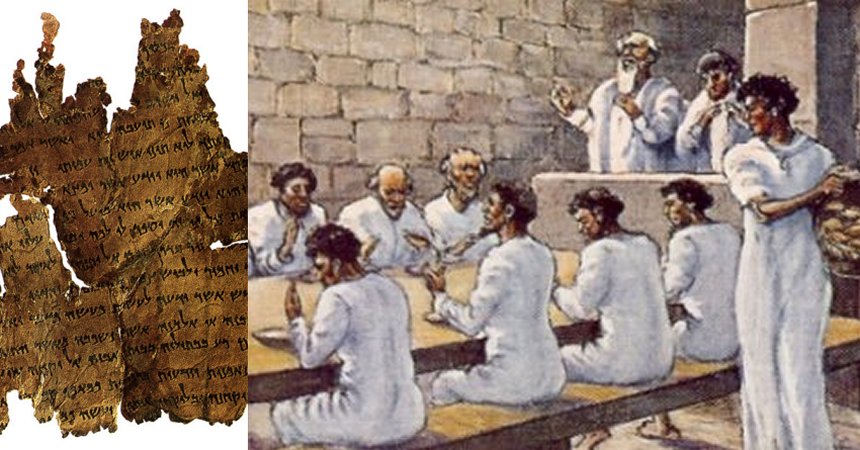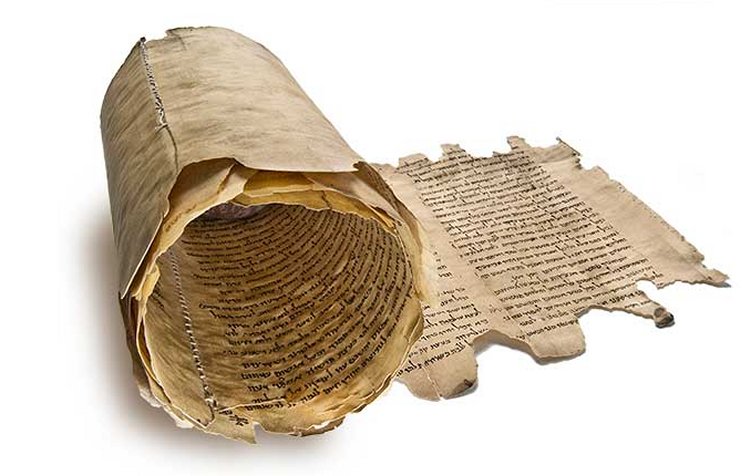Strange Community Rules Of Essenes Preserved In The Dead Sea Scrolls
Jan Bartek - AncientPages.com - Originally known as the Manual of Discipline, the community rules were written during a time when there was political instability in the region and the goal was the create a strong community consisting of very loyal members.
Still, we cannot deny that some of the rules were very strange and a member could be punished for the behavior we today consider quite normal.
The Damascus Document Scroll, 4Q271Df, found in Cave 4. Credit: Public Domain - Right: An ancient sect of the Essenes at the meal table, Qumran. Credit: NCCG
In West Jordan in 1947, near the ruins of Qumran - also known as Khirbet Qumran - clay pots filled with ancient scrolls were found stored in eleven caves, located 13 miles east of Jerusalem, Israel. These ancient manuscripts are today known as the Dead Sea scrolls.
“The texts are written using a carbon-based ink and are mostly in Hebrew, with some in Aramaic (a Semitic language, allegedly spoken by Jesus) and in Greek.
Preliminary analysis showed the texts belonged to the Essenes, members of a religious sect, or brotherhood that flourished in Palestine from about the 2nd century BC to the end of the 1st century AD.
However, a later review of these results has raised additional questions related to the scrolls, considered one of the greatest archaeological events of the twentieth century.
Still not much is known about the Dead Sea Scrolls and the place where they were discovered. There are also many controversies.
One of these issues is for example, who wrote the Dead Sea Scrolls and then hid them away in the caves around Qumran. Some scholars believe that the Essenes were not responsible for the Dead Sea Scrolls at all, but the manuscripts were written by priests of Jerusalem's Second Hebrew Temple and later transported to Qumran and safely hidden from the Romans.
But also, this theory has many opponents.
Was the Vatican behind a plot to suppress the release of the scrolls to the public out of fear that they contained the dangerous material related to early Christianity?” 1
What Can We Learn From The Community Rules?
Wherever we hear loud laughter we automatically see this as a sign of happiness. Granted that laughter can occasionally be inappropriate, but it’s hardly behavior that should be punished, at least not in our modern society, but ancient people were of a different opinion.
According to the community rules of the Dead Sea Scrolls, loud laughter was forbidden among the Essenes, who are generally recognized as the authors of the Dead Sea Scrolls. The community rules reveal a person could be punished and banished from the community for “breaking the social harmony”.
The sect divided humanity between the righteous and the wicked and asserted that human nature and everything that happens in the world is irrevocably predestined.
“The Rule of the Community (1QS), from the Dead Sea Scrolls, sets forth the beliefs and activities of a community of pious sectaries at Qumran in the desert just before the Christian era—what Professor Frank Cross has called a sect (church) of “anticipation.”
Everything is by way of preparation “for the eternal planting of a holy temple for Israel, and the mysteries (secret ordinances) of a holy of holies for Aaron” (1QS VIII, 5–6). Preparation is the theme; hence, it is not surprising that the specific ordinances referred to are the initiatory rites.
But at the same time, the scroll makes clear the ultimate objective of its whole operation—exaltation and eternal lives for the members—while plainly indicating the general nature of the temple activities to which it looks forward with such eager anticipation.
The facsimile of the Manual of Discipline. Credits: Facsimile Editions
The whole theme of religion is eternal life. But beings who would live forever must be prepared to do so—they must be perfect. Nothing but perfection will do for an order of existence that is to last forever and ever.
The striving for perfection is the theme of the Rule of the Community. The sectaries of Qumran knew that the greatest of all prizes were not to be cheaply bought, that there could be no cheating or cutting of corners; to prepare for eternity, one must be willing to go all the way.” 2
The strict rules were meant to prevent negative emotions as well as rivalry and conflicts. Some of the community rules were peculiar or almost a bit funny. For example, you could be punished for falling asleep during a meeting, laughing loud, lying, or speaking rudely.
People who were impatient or sought revenge were also regarded as unwanted members of the community.
If you broke one of the community rules, you could be prohibited from participating in the sect’s activities, like common meals and meetings. If the “crime” was considered severe enough, or someone broke the rules on a regular basis, the member could be expelled from the community.
Written by Jan Bartek - AncientPages.com Staff Writer
Copyright © AncientPages.com All rights reserved. This material may not be published, broadcast, rewritten or redistributed in whole or part without the express written permission of AncientPages.com
Expand for references- Sutherland - Qumran: The Dead Sea Scrolls And Their Connection To Enigmatic Essenes
- Hugh Nibley, From the Dead Sea Scrolls - Studies in the Bible and Antiquity, Vol. 2
Hempel, Charlotte. "Interpretative Authority in the Community Rule Tradition." Dead Sea Discoveries 10, no. 1 (2003): 59-80. Accessed May 17, 2020.
More From Ancient Pages
-
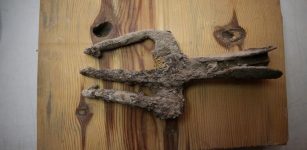 1700-Year-Old Iron Trident Found In The Ancient City Of Assos, Turkey
Archaeology | Nov 1, 2023
1700-Year-Old Iron Trident Found In The Ancient City Of Assos, Turkey
Archaeology | Nov 1, 2023 -
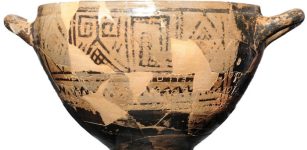 Mystery Of The Tomb Of Nestor’s Cup Unraveled
Archaeology | Oct 6, 2021
Mystery Of The Tomb Of Nestor’s Cup Unraveled
Archaeology | Oct 6, 2021 -
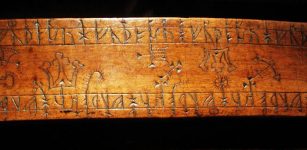 Vikings And The Runic Calendar
Artifacts | Mar 4, 2016
Vikings And The Runic Calendar
Artifacts | Mar 4, 2016 -
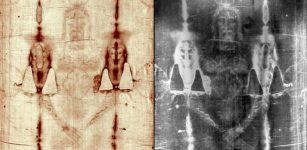 Blood Discovered On The Shroud Of Turin – Strand Of Jesus’ DNA Can Be Found – Researchers Say
Archaeology | Jul 19, 2017
Blood Discovered On The Shroud Of Turin – Strand Of Jesus’ DNA Can Be Found – Researchers Say
Archaeology | Jul 19, 2017 -
 How Did People Go To The Toilet In The Past Before The Invention Of The Flush Toilet?
Archaeology | Jun 10, 2023
How Did People Go To The Toilet In The Past Before The Invention Of The Flush Toilet?
Archaeology | Jun 10, 2023 -
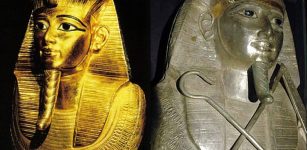 Pharaoh Psusennes I Buried In The Silver Coffin Inlaid With Gold
Civilizations | Jul 16, 2016
Pharaoh Psusennes I Buried In The Silver Coffin Inlaid With Gold
Civilizations | Jul 16, 2016 -
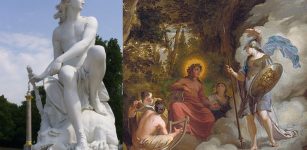 Apollo – Loved And Feared Greek God Of Divination And Prophecy Who Was Also Seer Of Zeus
Featured Stories | Feb 6, 2019
Apollo – Loved And Feared Greek God Of Divination And Prophecy Who Was Also Seer Of Zeus
Featured Stories | Feb 6, 2019 -
 Gods’ Creation Of Five Different Human Races – Ages Of Man On The Earth And The End Of The World
Featured Stories | Jan 26, 2018
Gods’ Creation Of Five Different Human Races – Ages Of Man On The Earth And The End Of The World
Featured Stories | Jan 26, 2018 -
 Strange Encounter With A Supernatural Being In The 1790s
Featured Stories | Jan 12, 2020
Strange Encounter With A Supernatural Being In The 1790s
Featured Stories | Jan 12, 2020 -
 Andalusia Was First Inhabited By Neolithic People From The Southern Part Of The Iberian Peninsula 6,200 Years Ago
Archaeology | Feb 26, 2024
Andalusia Was First Inhabited By Neolithic People From The Southern Part Of The Iberian Peninsula 6,200 Years Ago
Archaeology | Feb 26, 2024 -
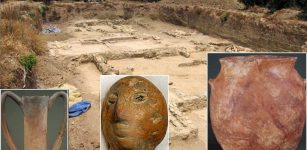 Legendary Helike – Uncovering Lost City of Poseidon
Civilizations | Dec 19, 2018
Legendary Helike – Uncovering Lost City of Poseidon
Civilizations | Dec 19, 2018 -
 Facial Reconstruction Of Ancient Inhabitants Of Sagalassos Make Them Almost Real
Archaeology | May 31, 2019
Facial Reconstruction Of Ancient Inhabitants Of Sagalassos Make Them Almost Real
Archaeology | May 31, 2019 -
 Renewed Excavations Of Unique More Than 5,000-Year-Old Megalithic Tomb Found In Poland
Archaeology | Dec 28, 2017
Renewed Excavations Of Unique More Than 5,000-Year-Old Megalithic Tomb Found In Poland
Archaeology | Dec 28, 2017 -
 Strange Prophecy Of Oleg Of Novgorod’s Death – Where Is Russia’s Viking Ruler Buried?
Featured Stories | Jan 2, 2021
Strange Prophecy Of Oleg Of Novgorod’s Death – Where Is Russia’s Viking Ruler Buried?
Featured Stories | Jan 2, 2021 -
 New Models Shed Light On Life’s Origin
DNA | Feb 13, 2023
New Models Shed Light On Life’s Origin
DNA | Feb 13, 2023 -
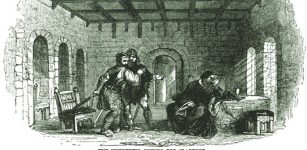 On This Day In History: George Plantagenet Privately Executed At The Tower Of London – On Feb 18, 1478
News | Feb 18, 2017
On This Day In History: George Plantagenet Privately Executed At The Tower Of London – On Feb 18, 1478
News | Feb 18, 2017 -
 Mysterious Ancient Tracks In Rock, Strange Legend And Hidden Treasure – A Puzzle From Arkansas
Featured Stories | Sep 3, 2024
Mysterious Ancient Tracks In Rock, Strange Legend And Hidden Treasure – A Puzzle From Arkansas
Featured Stories | Sep 3, 2024 -
 Secrets Of Iron Age Power Center Uppåkra Revealed By Archaeologists
Archaeology | Oct 22, 2022
Secrets Of Iron Age Power Center Uppåkra Revealed By Archaeologists
Archaeology | Oct 22, 2022 -
 Neanderthals Had Capacity To Speak And Understand Language Like Humans
Archaeology | Mar 2, 2021
Neanderthals Had Capacity To Speak And Understand Language Like Humans
Archaeology | Mar 2, 2021 -
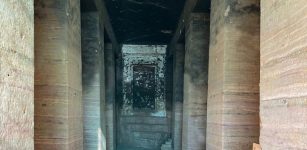 Egypt’s Oldest Tomb Oriented To Winter Solstice Discovered In Aswan
Archaeology | Nov 18, 2022
Egypt’s Oldest Tomb Oriented To Winter Solstice Discovered In Aswan
Archaeology | Nov 18, 2022

